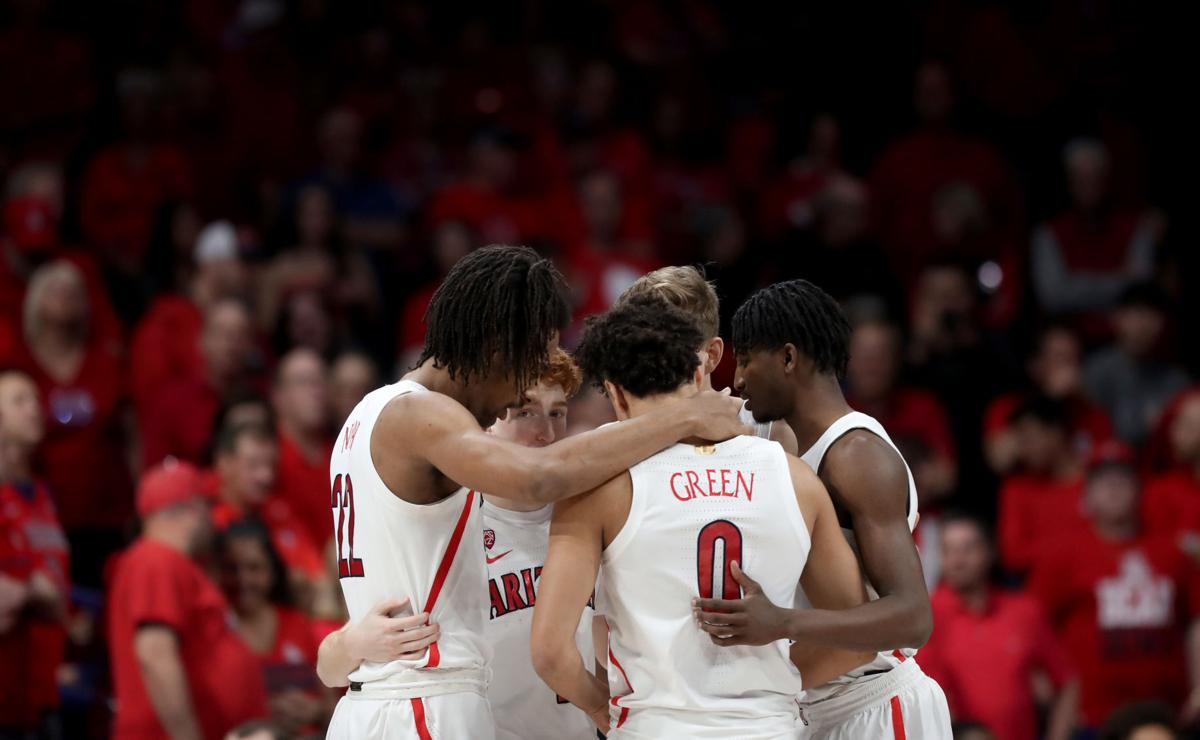If there’s a college basketball season in 2020-21, surviving the “bubble” may be less about squeaking into the NCAA Tournament than about being cooped up inside a hotel for weeks on end.
It’s unclear if the Pac-12 is on board with that.
When announcing the Pac-12’s decision Tuesday to postpone all sports competition until at least January, commissioner Larry Scott said “we cannot bubble” athletes like the pros do. But NCAA president Mark Emmert said Thursday he is open to the idea, saying it is better to cluster at predetermined sites than “run kids all over the country” to play some sports.
As a result, the NCAA and its basketball committee have been looking into holding mini basketball bubbles possibly as early as late November or December, when most schools will be either fully remote or on winter break.
“Clearly, once students have gone away from campus and they’re no longer around for classes, that is a unique opportunity to try to focus on the game of basketball,” Kentucky athletic director Mitch Barnhart, this year’s NCAA basketball committee chair, told NCAA.com.
Under a “bubble” format that would at least somewhat follow what the NBA, WNBA and The Basketball Tournament have done this summer, multiple teams could be grouped at hotels near or adjacent to arenas, with frequent testing and limited mobility for players and coaches.
Dan Gavitt, the NCAA’s senior VP for basketball, told NCAA.com that the early-season bubbles could be “regionalized and very controlled environments” for non-conference or conference games. He also indicated that everyone might not participate, noting that the selection committee is aware some teams will enter Selection Sunday with wildly varying numbers of games played depending on what their conferences decide allow.
“I know some conferences have made decisions about waiting until January and we’re respectful of those decisions, but we need to take advantage of opportunities as well,” Gavitt said.
If the Pac-12 sticks with its current decision, its teams would not be allowed to play in a December nonconference bubble. They might instead cluster in small groups within the conference footprint to play conference-only games starting in January.
While UA’s Sean Miller and several other Pac-12 coaches have said they expected the Pac-12 to postpone its season, USC athletic director Mike Bohn told the Los Angeles Times that including basketball in the Pac-12’s nothing-until-January proclamation was a surprise.
Colorado coach Tad Boyle said he hopes the Pac-12 will reconsider its decision in the event that the NCAA creates safe bubble-like conditions to play games in November or December.
“As coaches and administrators, as conference offices, from a basketball perspective you need to listen to Dan Gavitt,” Boyle said. “Dan Gavitt is smart. He gets the big picture and he can be the leader that college basketball needs to hopefully help navigate us through this. But it’s not gonna work if we don’t listen to Dan Gavitt, if we don’t consult him before we make major decisions.”
While the Pac-12 is spread out over six states with vastly different map coronavirus situations, Boyle said he’s frustrated by the Pac-12’s decision to postpone considering how well things have gone in Boulder. There, he said COVID-19 “exists but is not rampant”; he said the Buffaloes have been able to have a relatively normal summer since returning to campus since June 7.
“They had to come in early to quarantine before we had voluntary workouts on June 15, and on July 20th we were allowed to get the gym with them,” Boyle told the Star on Thursday. “From June 7 to today, we have had zero issues.”
But the Pac-12’s California schools are still unable to allow their players to work out inside, with Cal players even lifting weights under a tent. Arizona is just getting its players back into town this week, with a seven-day isolation period ahead before the Wildcats can begin working out on campus.
It’s a vastly different group of scenarios, with a vastly different season ahead, but there’s one thing coaches and administrators agree on: It will happen. In some form, at some time, in some place.
Or maybe just one place.
“There are all sorts of contingencies that are going to be in place,” Gavitt said. “We’ll be flexible, we’ll be nimble, and we’ll deliver what the country is desperately looking for again, and that’s just an incredible March Madness tournament in 2020-21.”





